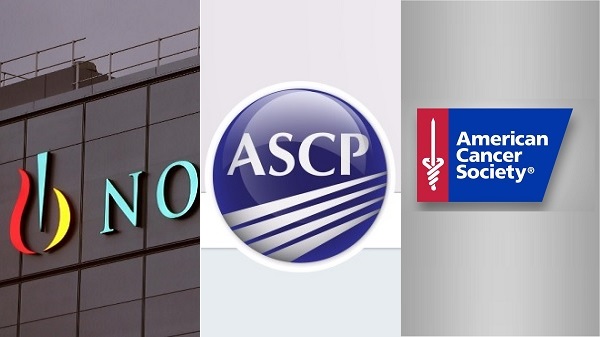
BASEL, Switzerland (GlobeNewswire)–Novartis, the American Society for Clinical Pathology (ASCP) and the American Cancer Society (ACS) announced today they will work together to devise a common approach to improve access to cancer treatment in Sub-Saharan Africa. Each partner brings unique expertise in cancer diagnosis and treatment. This complements the work the Clinton Health Access Initiative (CHAI) is doing to improve access to affordable, quality-approved oncology medicines in the region.
ASCP will build healthcare capacity for immuno-histochemistry (IHC) analysis in two hospital laboratories in Ethiopia and Tanzania. ACS will support training of healthcare professionals in Ethiopia, Tanzania and Uganda to ensure quality processes in the transportation of biopsy samples and in the administration of chemotherapy. Novartis will provide funding to support the technical work. This initiative will serve as a pilot for the future roll-out of similar activities to other countries.
“Immunohistochemistry is required for oncologists to treat many cancers,” said ASCP CEO Blair Holladay, PhD, MASCP, SCT(ASCP)CM. “This partnership will allow us to provide high-quality, rapid, and accurate screening and diagnosis, taking in-country cancer care to the next level.”
“The American Cancer Society is pleased to be a part of this initiative to make high-quality cancer treatment available to people with cancer in Ethiopia and Tanzania. We’ll be addressing some of the most pressing challenges patients face in getting access to high-quality cancer treatment,” said Sally Cowal, Senior Vice President for Global Cancer Control at ACS.
Cancer is on the rise in Sub-Saharan Africa. Approximately 650,000 people in Africa develop cancer annually, and about 510,000 cancer deaths occur annually due to limited treatment. More than one third of cancer deaths in Africa are from cancers that are easily preventable and/or treatable, if detected early.
“A medicine is only as good as the system that delivers it,” said Dr. Harald Nusser, Head of Novartis Social Business. “Through our catalytic funding, we target projects that have an impact on healthcare providers and support patients through their journey. We hope this collaboration will provide earlier and more effective diagnosis to cancer patients, improving the likelihood for better health outcomes.”
Cancer care in Africa is still fragmented. Through this initiative, partners are being connected to national health priorities, strengthening the whole continuum of care for cancer patients, from training for better diagnosis and care and improved access to treatment, through to advocacy for national cancer treatment guidelines.
ASCP IHC Capacity Building Program
The diagnosis and treatment of cancer requires high-quality, rapid, and accurate screening and testing. This includes interpretation of histology for diseases, such as breast carcinoma, which requires IHC to determine specific, targeted treatments for each patient. A pathology laboratory equipped to produce hematoxylin and eosin stain-one of the principal stains in histology-is not enough, even with a competent pathologist present and adequate reagents and consumables. Immunohistochemistry is required for oncologists to treat many cancers.
ASCP will focus on improving access to diagnostic equipment; provide laboratory-wide training to increase access to therapies for IHC-related diagnosable cancer; and ensure supply chain management for IHC reagents and supplies. This work is aligned with the health strategies of Ethiopia and Tanzania, which detail the need for IHC as part of diagnostic services, specifically to advance the fight against breast cancer.
Read the complete story at GlobeNewswire
——
See also:
- HEALTH: Expanding Cancer Research in Ethiopia
- A New Cancer Treatment Center to Be Inaugurated at Haramaya University
- HEALTH: Breast Cancer Replaces Cervical Cancer as Top Women Illness in Ethiopia
- The Pediatric Cancer Unit at Jimma University Specialized Hospital Treated More than 100 Children with Cancer
